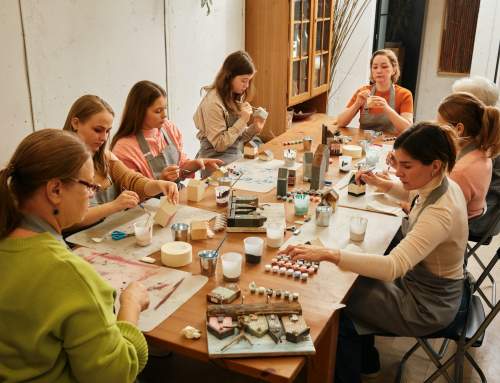Over the last year in Australia, there have been 500,000 searches on Google about what to do if you hate your job. That suggests there are a lot of unhappy workers in Australia!
Everyone has a few off days but if you consistently loathe going to work, you have a problem.
In my previous blog 5 Steps to Maintaining Your Well-being at Work, I talked about the ill-effects of workplace stress, which can result in both physical and mental disorders.
Many people tolerate unhappiness at work because they need the job to pay their bills. But if your work affects your well-being, it’s time to reassess. Without your health, you can’t work or live sustainably.
Why Are You Unhappy at Work?
There are many reasons why you could be unhappy at work but according to research by the Australian National University, there are four factors that consistently lead to unhappiness:
- Lack of control: minimal freedom to make decisions and exert influence.
- Lack of security: concerns about the future of the company and the job.
- Lack of pay: perceived unfairness in how performance is rewarded.
- Lack of complexity: simplistic work, little learning, and an under-utilisation of employees’ skills.
Do any of these factors apply to your job? It may explain why you are unhappy at work.
Think first, speak later
Before you shout from the water cooler “I hate my job” – pause and think. Your boss may well be a jerk but there’s a good chance you’ll need a reference to secure your next job. While you may get a short-term burst of satisfaction telling workmates how unhappy you are, think about what you stand to lose from doing so. One of my clients who hated her job unwittingly started to bad mouth her job, her colleagues, her boss and the business – classic “career unhappiness” behaviour. She did not realise how indiscreet she had been until she applied for a new job with another firm and was told she was unsuccessful because they knew of her bad behaviour.
Take a break
Quitting your job or accepting a redundancy is often a smart thing to do if you really hate your job because it creates a “circuit breaker”. It gets you out of the negativity. It can, in many cases be a positive life-changing decision. In my blog The 6 things about redundancy I talk about the value of taking a break to give yourself time to think about your next step. A holiday is a good idea because it will also give you time to re-charge your batteries, get the negativity out of your head and think about “what next” before you move on with the next phase of your life. Many of my clients have taken a break after being made redundant and have reported that it was: “the best thing I could have done”, “a great freshen up”, “a chance to close off that chapter of my life”, and my personal favourite, “a chance to reconnect with myself”. These are all very positive sentiments.
Psychologist Dr Susan Krauss Whitbourne says a successful holiday can benefit your physical and mental health.
“Vacations have the potential to break into the stress cycle. We emerge from a successful vacation feeling ready to take on the world again. We gain perspective on our problems, get to relax with our families and friends, and get a break from our usual routines,” said Dr Krauss Whitbourne.
Do Talk to Someone You Trust
If you’re unhappy, it’s not good to brew up your feelings. Instead of complaining at work, talk to family and friends. However, keep in mind family can’t always give you unbiased advice because they depend on your income and might be fearful of change. I remember when I left my last job a family member said to me “what do I tell people you do?”.
Your friends will give you well-meaning advice but it can be unhelpful. Think about it, have you ever received advice from family or friend that was objective, well-researched and appropriate to you? I would guess rarely because they all have a perception of what you should be doing – according to them. It’s amazing how many of my clients talk about how they changed things based on family or friend’s advice and it only made things worse!
Sometimes, you need an independent sounding board, like a career coach – a trained professional who will listen objectively and help you sort out what is best for you. A career coach is the person most likely to give you the best advice that suits you.
Should you stay, or go?
The decision to quit or stay in a job can be complicated, particularly if you are the main bread-winner of the family.
To help make a decision about whether to stay or go, I recommend you write down:
- A list of things about your job that are not working. Can you influence any of the things that make you unhappy at work? For example, if you don’t like your boss, can you request a transfer to a different area?
- The costs and benefits of staying or leaving. When faced with the prospect of leaving a job, many people will act out of fear and list only the risks without thinking about what could improve in their lives.
- Scenarios for what life would look like if you stayed or if quit and chased career happiness.
Writing down the facts on paper will help you assess your situation rationally, rather than emotionally.
Make a plan before you quit
If you have decided you want to leave your job then make a plan. Consider:
- How much money do you need to live on?
- Do you need to study or retrain?
- Updating your resume and LinkedIn profile.
- Asking for references or recommendations on LinkedIn from colleagues and customers before you leave.
- Drafting a thoughtful resignation letter. Tempting as it might be to give some feedback, avoid saying anything that might tarnish your reputation.
- Setting a date to hand in your resignation.
- Start “working” your network to see what opportunities are out there.
Do you hate your job? I offer a complimentary 60 minute session where you can confidentially talk to me about your career. You don’t need to have all the answers, finding your best career path can start with a conversation.
For more information on what to do if you hate your job:
Read:
- Jobs we hate – and love the most
- When You Should Quit Your Job Before Having Another One Lined Up
- The importance of vacations to our physical and mental health
Watch:







